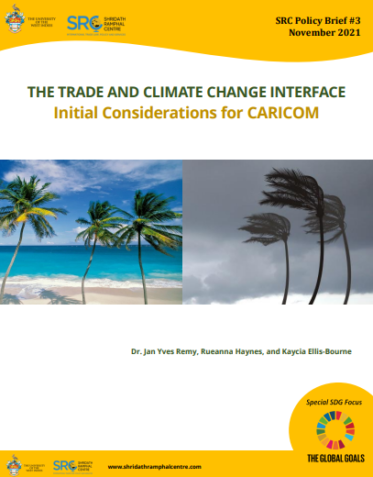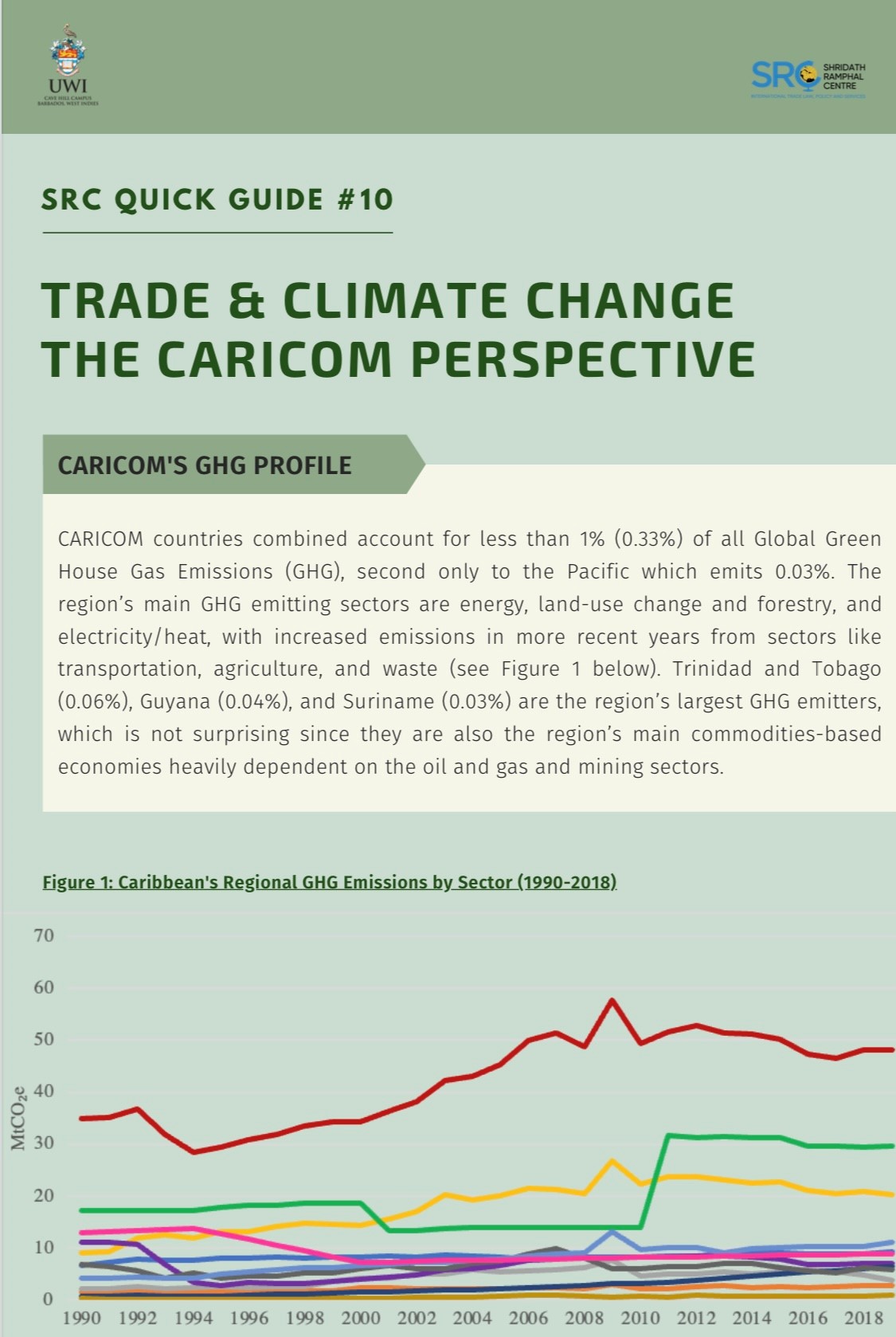Trade and Climate Action
The SRC is pleased to announce the launch of its webpage on Trade and Climate Action that houses all of the work being done by the SRC on the trade/climate change interface. In addition, through its Director, the SRC is involved in a Remaking the Global Trading System for a Sustainable Future Project, together with Professor Dan Esty at the Yale School of the Environment and Yale Law School, Professor Diana Van Patten at the Yale School of Management, Professor Joel Trachtman and Dean Rachel Kyte at the Fletcher School of Law and Diplomacy at Tufts University. More information about that Project is available here.
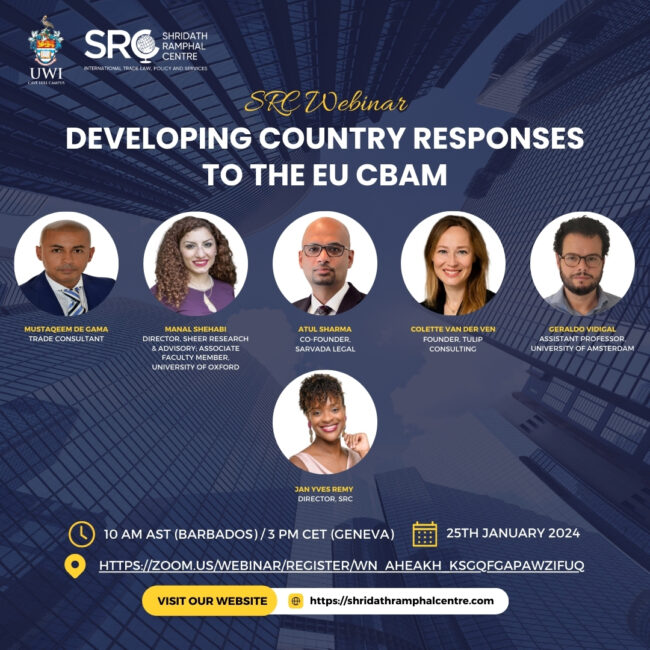
SRC Webinar
On Thursday, 25th January 2024, the SRC hosted its first webinar for the year. The SRC Lunchtime Chat, entitled “Developing Country Responses to the EU CBAM“, explored the legality, practicality and effectiveness of the European Union’s Carbon Border Adjustment Mechanism (EU CBAM) and how various developing countries have responded to it since it entered into application in its transitional phase in 2023.
SRC Webinar - Recording
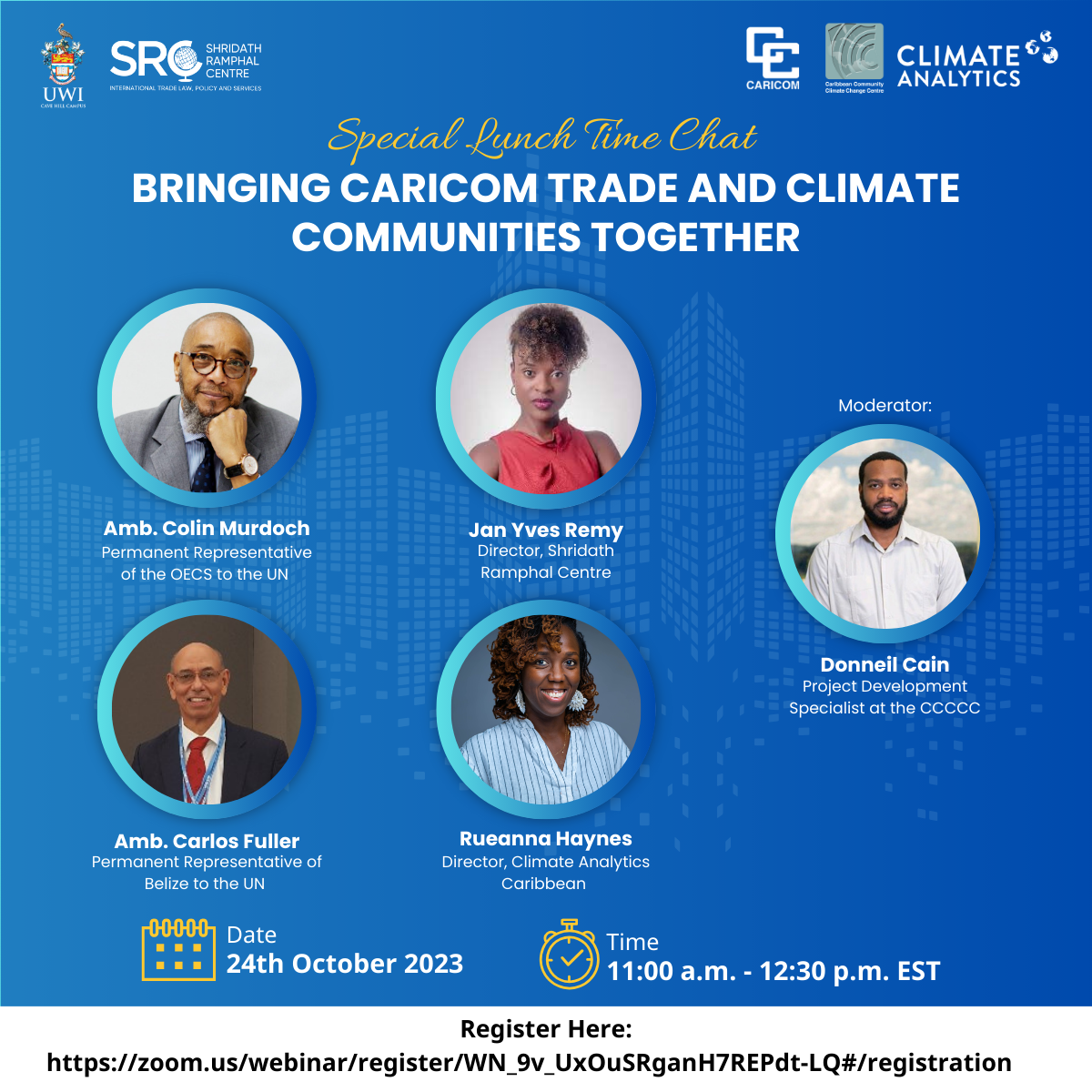
SRC LunchTime Chat - Special Edition
The SRC is pleased to invite you to a Special Lunch Time Chat on Tuesday October 24, 2023 at 11:00 a.m. (Eastern Time) via Zoom teleconference.
Organized by the Shridath Ramphal Centre for International Trade Law, Policy, and Services of the University of the West Indies, Cave Hill Campus in collaboration with the Caribbean Community Climate Change Centre (CCCCC) and Climate Analytics, this session seeks to encourage and facilitate discussions between members of Caribbean Trade and Climate Communities.
SRC LunchTime Chat - Special Edition - Recording
Remaking Trade Project - Villars Framework for a Sustainable Global Trade System
The SRC is pleased to share Version 2.0 of the Remaking Trade for a Sustainable Future Project’s (RTP) Villars Framework. This version incorporates feedback received during the first Villars Framework Summit in September 2023, and contains a new chapter on the social dimensions of sustainability.
Visit the Remaking Trade for a Sustainable Future website for more information.
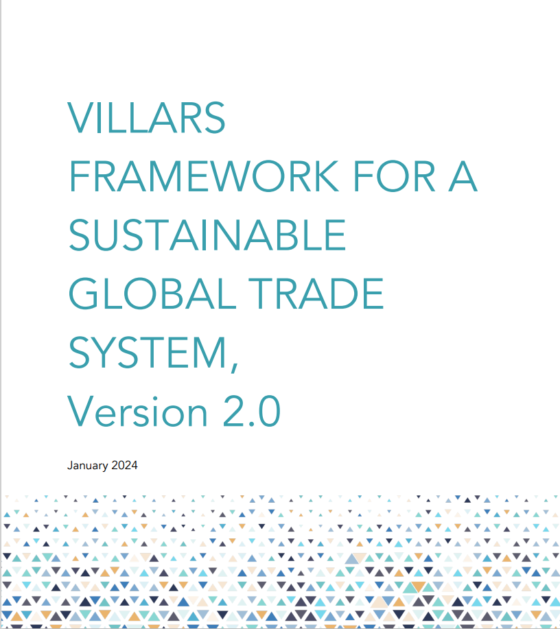
SRC - TESS Forum Publication - Policy Paper
The Caribbean region throws up unique challenges for
both the climate change and trade communities. Being
among the most vulnerable regions in the world to the
impacts of rising global temperatures, the small island
developing states (SIDS) of the Caribbean Community
(CARICOM) stand to face severe environmental, economic,
and infrastructural losses in the coming years. On the trade
front, the region still accounts for a very small share of global
trade, has registered overall declines in terms of global
competitiveness and participation in global value chains,
and is a relatively small player in negotiating and dispute
settlement for a at the World Trade Organization (WTO).
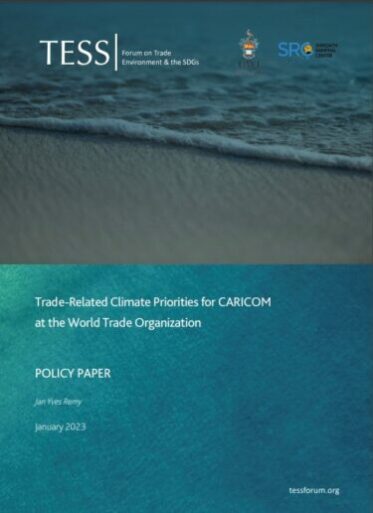
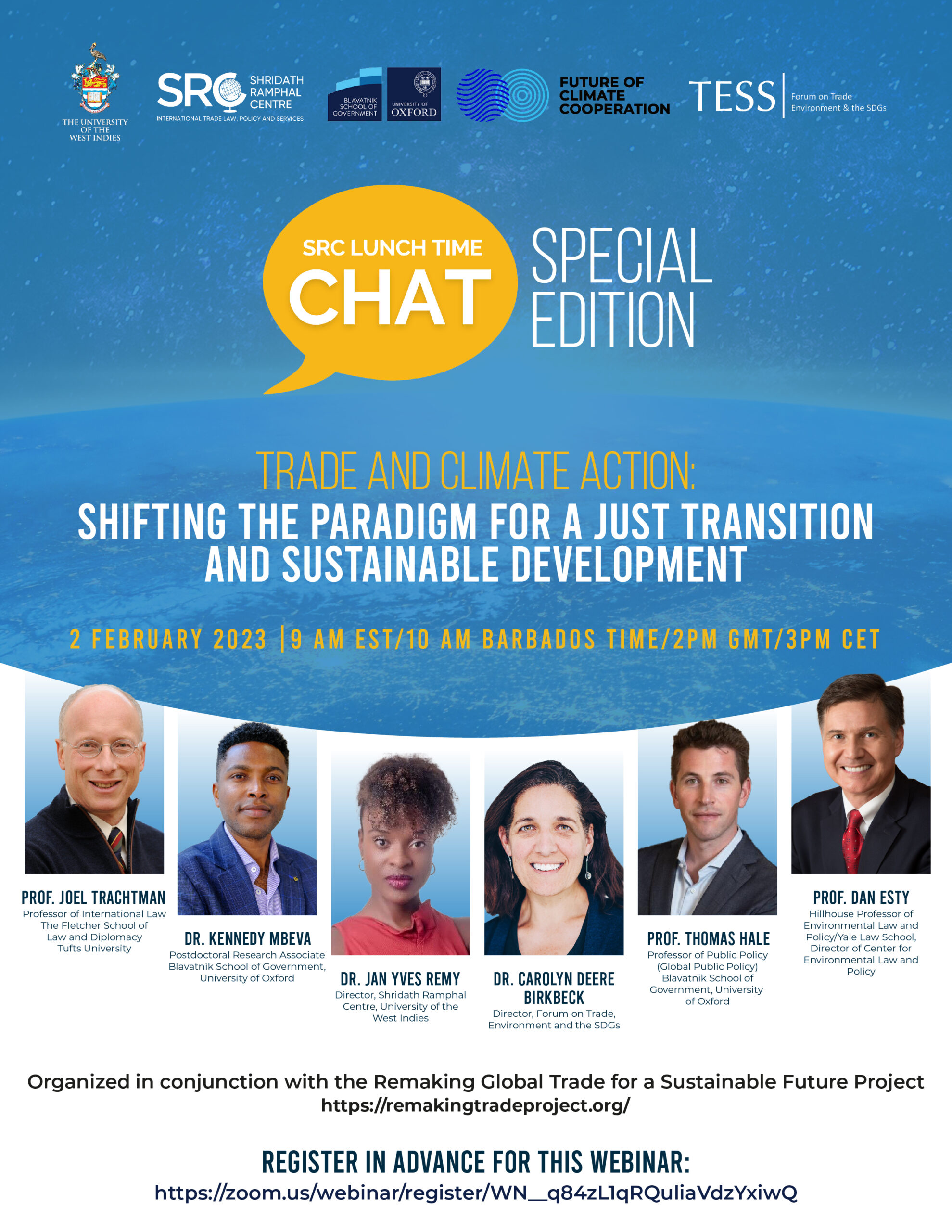
SRC LunchTime Chat - Special Edition
As recognition of the urgency of climate action increases, debate is growing on the need to spur a paradigm shift to support sustainability in the international trading system. Moreover, critical gaps remain on how the links between trade, finance and climate action can be more ambitious and better promote a just transition and climate-resilient development.
The SRC is pleased to join forces with Aligning Climate and Economic Governance (ACEGOV), the Forum on Trade, Environment and the SDGs (TESS), and the Remaking Global Trade for a Sustainable Future Project, on Thursday, February 2, 2023 at 10:00 am to deliver this 1.5-hour webinar to discuss these issues.
SRC LunchTime Chat - Special Edition - Recording
SRC Trading Thoughts
Why the Bridgetown Initiative on Climate Finance is Good For Trade
By Dr Jan Yves Remy
It was not so long ago, in March 2022, that Prime Minister Mia Amor Mottley of Barbados went to the World Trade Organization (WTO) in Geneva seeking concrete answers on how the WTO was helping developing countries with one of their most pressing needs – financing their climate adaptation and mitigation efforts to transition to green economies and reduce their greenhouse gas emissions (GHGs).
Fast forward just seven months, and so much has changed. The WTO’s Director General, Dr. Ngozi Okojo-Iweala, has made sustainability and climate change action one of the central issues defining her administration, with her efforts to date culminating with the release of the World Trade Report 2022 on Climate Change and International Trade at the climate change negotiations in Sharm El-Sheikh, Egypt (COP27). In turn, PM Mottley has refined her thinking and broadened the appeal of her core message: that the “Bretton Woods” international financial institutions – the IMF and the World Bank – must be reformed to help developing countries fund adaptation and cope with the irreversible loss and damage from climate change. Dubbed the Bridgetown Initiative, PM Mottley’s proposals have received the nod from influential friends at COP27, like French President Macron, and look set to unleash a new wave of thinking about the way global institutions are approaching risk and pricing capital for climate-resilient projects across the world.
The Trade and Climate Change Interface
Dr. Jan Yves Remy, Rueanna Haynes and Kaycia Ellis-Bourne
November 2021
The phenomenon of “climate change” is linked to direct or indirect human activity which alters the composition of the global atmosphere over and above natural climate variability observed over comparable time periods. It results from a gradual increase in average global temperatures caused by the accumulation of greenhouse gases (GHG) in the atmosphere. The principal GHGs are carbon dioxide (CO2), methane, nitrous oxide, and fluorinated gases. CO2 comprises 64.3% of GHGs and enters the atmosphere through the burning of fossil fuels, solid waste, trees and wood products, and certain chemical reactions. The adverse impacts of global warming and the resulting changes in the climatic conditions are formidable stumbling blocks to sustainable development, in particular, for small island developing states (SIDS) of which most Caribbean states are a sub-set.
